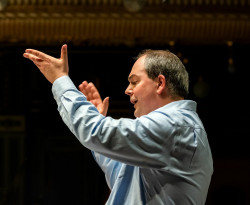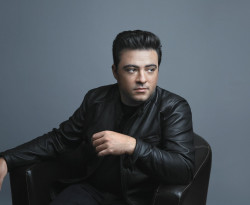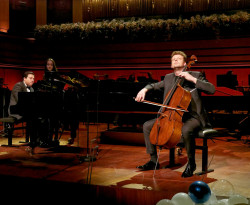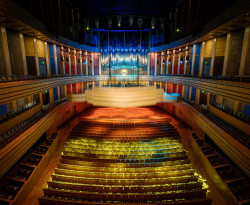
Budapest Festival Orchestra
Monteverdi, Bartók, Schubert
Ticket prices
Add this event to your Google Calendar.
"Frang has the knack of breathing life into every note” - wrote the critic of BBC Music Magazine about the musicianship of the Norwegian violinist. This time she is to breathe life into Bartók's score, his early Violin Concerto. To begin the colorful program, a few of the vocal works by Monteverdi, accompanied by an ensemble of instruments, will be performed. The composer reconsidered the relationship between music and words in a revolutionary way. The second part of the concert features one of Schubert's most significant orchestral works, a milestone of romanticism, the last symphony he finished.
Presented by: Budapest Festival Orchestra
Sections
Conductor:
-
Iván Fischer
Featuring:
-
violinVilde Frang
Parking information
We wish to inform you that in the event that Müpa Budapest's underground garage and outdoor car park are operating at full capacity, it is advisable to plan for increased waiting times when you arrive. In order to avoid this, we recommend that you depart for our events in time, so that you you can find the ideal parking spot quickly and smoothly and arrive for our performance in comfort. The Müpa Budapest underground garage gates will be operated by an automatic number plate recognition system. Parking is free of charge for visitors with tickets to any of our paid performances on that given day. The detailed parking policy of Müpa Budapest is available here.
Refreshments – Without the Queue
Thanks to our new catering service at the Átrium Snack Bar, you can forget about waiting in line during intermissions for some refreshments and get your order prepped especially for you by the time the intermission actually starts. Find out more about pre-ordering here.
Safe ticket purchase
Dear Visitors, please note that only tickets purchased from the Müpa website and official ticket offices are guaranteed to be valid. To avoid possible inconvenience, we suggest buying tickets to our performances and concerts via the mupa.hu website, the Interticket national network (jegy.hu) or at our official ticket offices.




